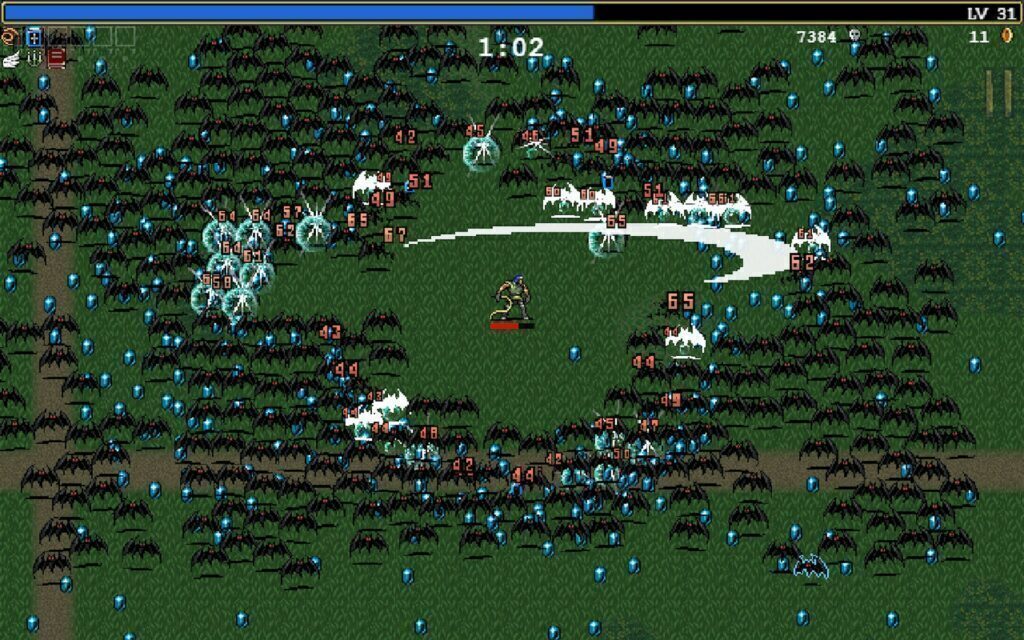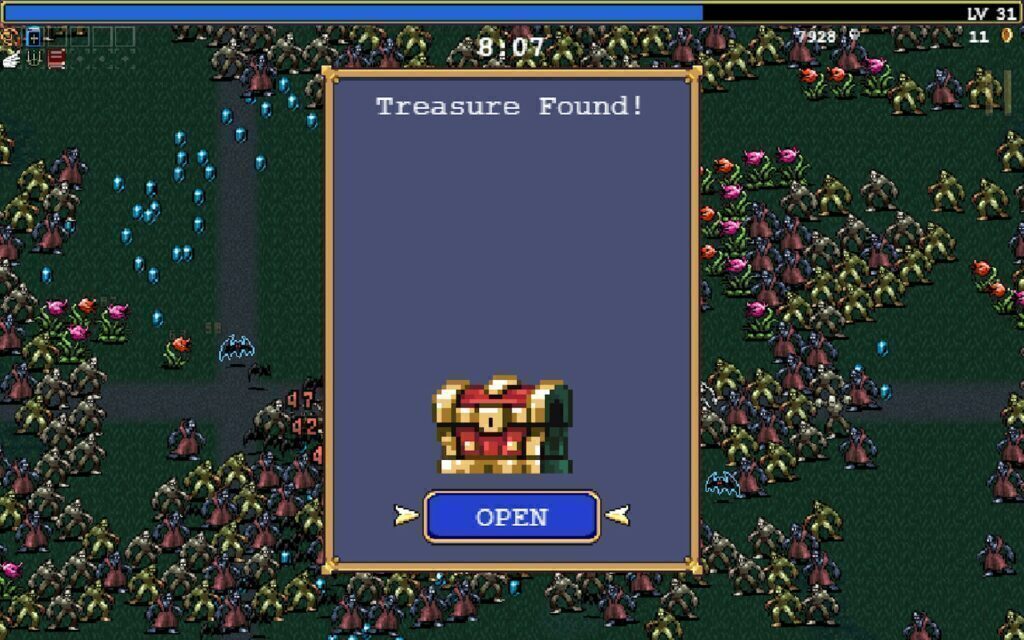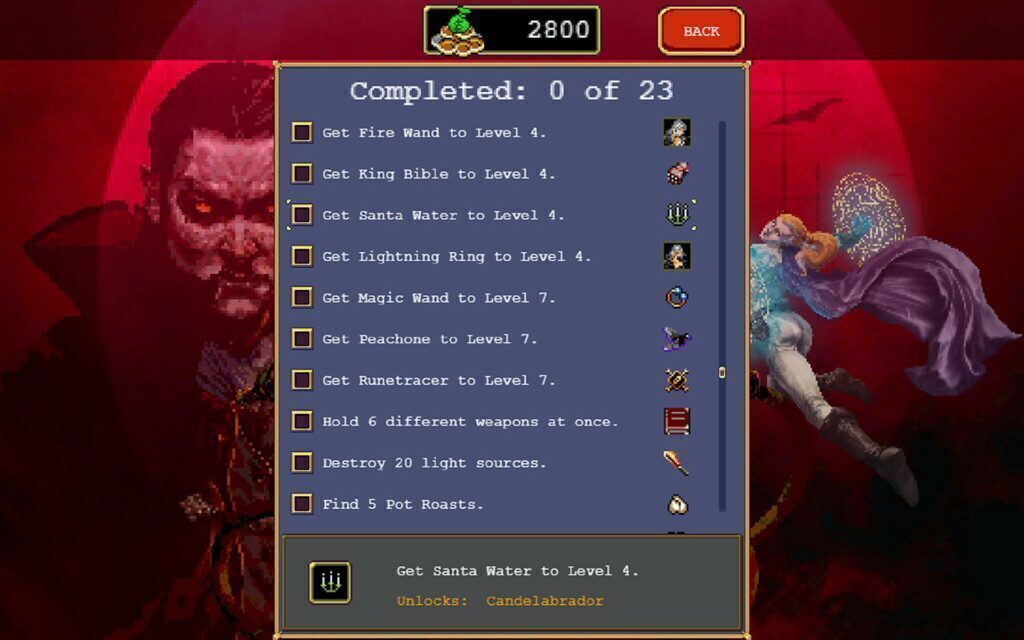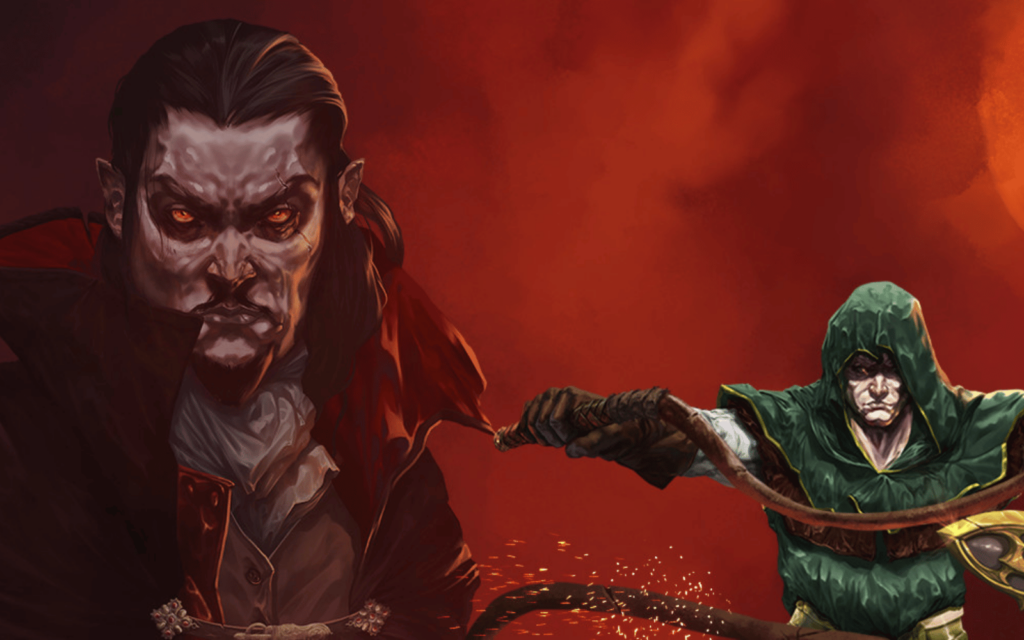The independent game Vampire Survivors delivered a shock result at the 2023 Bafta Game Awards when it defeated blockbusters God of War: Ragnarok and Elden Ring to take home the best game prize.
The result was met with surprise from many, including the development team themselves.
While the developer, Poncle, may lack the budget of big studios, the effortless playability and clever design decisions tap into player psychology in ways that make it extremely satisfying to play.
This psychological appeal is not accidental. Game designer Luca Galante has applied his previous experience in the gambling industry to Vampire Survivors.
The resulting game distils the essence of compelling, “just-one-more-go” game design and provides a foundation for a new sub genre in the gaming landscape.
The aim of Vampire Survivors is to survive as long as possible against swarms of monsters. The gameplay only requires directional controls for moving your character. Attacking monsters is automatic, with attacks triggering at frequent intervals, while upgrades increase their frequency, power and range.
This deceptively simple structure creates a game feel that may be best described as a dance between the player and enemy hordes.
 Vampire Survivors gameplay. Courtesy of Poncle, CC BY
Vampire Survivors gameplay. Courtesy of Poncle, CC BYWith careful manoeuvring, players can shepherd enemies into groups for more efficient destruction. With no other controls to think about, players can fully focus on picking paths through even the tightest gaps between monsters.
The minimal learning curve and fluidity of the game controls means even novice players quickly feel they are conducting the apparent chaos on screen with elegant finesse.
Once Vampire Survivors has players hooked, its reward structure has them coming back for more.
Power, flow and freedom
The Player Experience of Needs Satisfaction Model explains three key psychological needs games can fulfil and the player enjoyment and satisfaction experienced when they do.
Vampire Survivors efficiently addresses two of these: competence (a sense of power and mastery) and autonomy (a sense of freedom).
The game is built around multilayered rewards. In each run, players collect gold. Between runs, they spend that gold to enhance their character’s abilities.
 Gold can be spent to enhance character abilities. Courtesy of Poncle, CC BY
Gold can be spent to enhance character abilities. Courtesy of Poncle, CC BYAfter a run, players gain different achievements, ticked off from a lengthy list. This encourages the use of different characters or gameplay strategies to try and unlock every achievement.
No run ever feels wasted as players feel a sense of increasing mastery and progression, even if they only gain a little gold.
The game balances power and challenge through clever pacing. Periods where players comfortably dominate enemies are followed by periods of increased tension as bigger enemy groups appear.
Read more: God of War Ragnarök breaks new ground for accessible gaming – our research explains what more developers can do
This ensures players spend a majority of their playtime in a cognitively satisfying state of psychological flow, where their skill and the challenge presented by the game are optimally balanced.
Vampire Survivors also allows players autonomy and freedom to shape their experience. With 49 playable characters currently available, there is huge scope for experimenting with different play-styles.
 Challenges in Vampire Survivors. Courtesy of Poncle, CC BY
Challenges in Vampire Survivors. Courtesy of Poncle, CC BYThe game also allows players to reset their upgraded character builds for free and spend their gold differently, further encouraging replay and experimentation with different upgrade combinations.
Casinos thrive on encouraging players to push their luck and on making losses feel like they were nearly victories. Getting three different symbols on a slot machine is a loss. Getting two matching symbols and one other symbol is functionally the same but feels closer to a win, making players more likely to have another spin of the reels.
This “near miss effect” can be seen in many games, but Vampire Survivors’ structure means that every run in which players don’t reach the 30 minute mark (considered a “successful” run) will elicit this feeling.
Players may have been close to reaching the next level, grabbing another treasure chest, or unlocking an achievement, encouraging another run to see if this time they can do better.
Staking a claim to a new sub genre
Vampire Survivors has thrown down a gauntlet in what may well become a new sub genre.
The label “Soulslike” is now accepted for games inspired by FromSoftware’s Dark Souls series. It indicates that, much like the Dark Souls series, the game will involve high levels of difficulty, have an emphasis on environmental storytelling and will usually play out in a dark fantasy setting.
There may be a similar acceptance of a “Survivorslike” label for the number of similarly styled games to Vampire survivors that are now available.
Indeed, after winning the Breakthrough Award at the 2022 Golden Joystick Awards, Poncle fast-tracked the development of the game’s mobile version to combat the wave of copycat games being released.
Moreover, Poncle actively avoided the monetisation tactics so often employed on mobiles. Players only see advertisements in the game if they choose to in return for in-game bonuses. This has probably contributed to the mobile version’s widespread success.
It’s clear that the game has had a big impact on its many fans and the industry more broadly. The Bafta award only emphasises that Vampire Survivors has set a high bar for others to strive for.
- is a Senior Lecturer in Game Design, University of Portsmouth
- This article first appeared in The Conversation.




